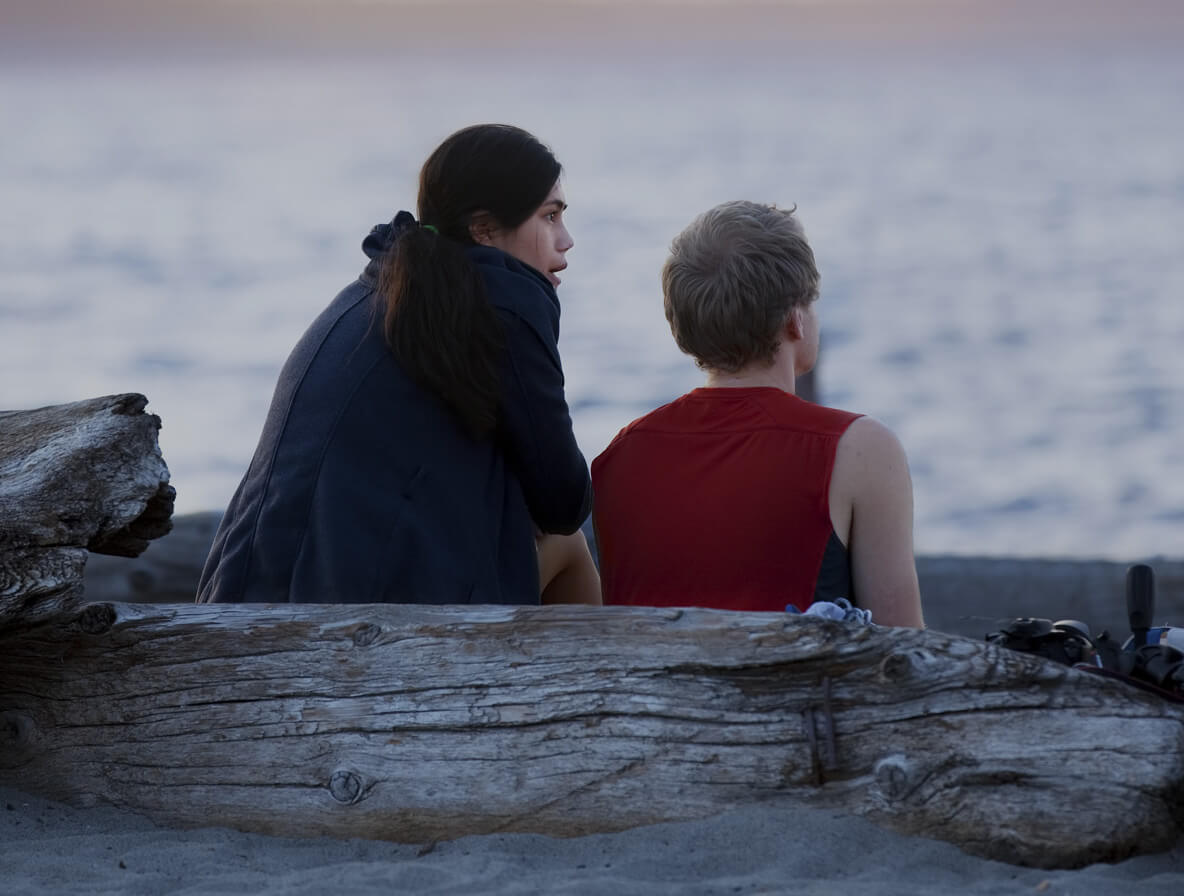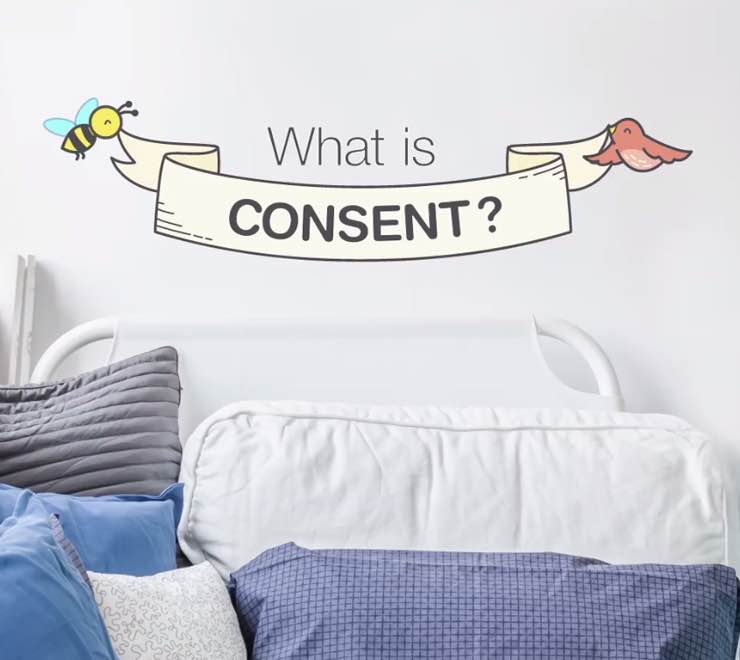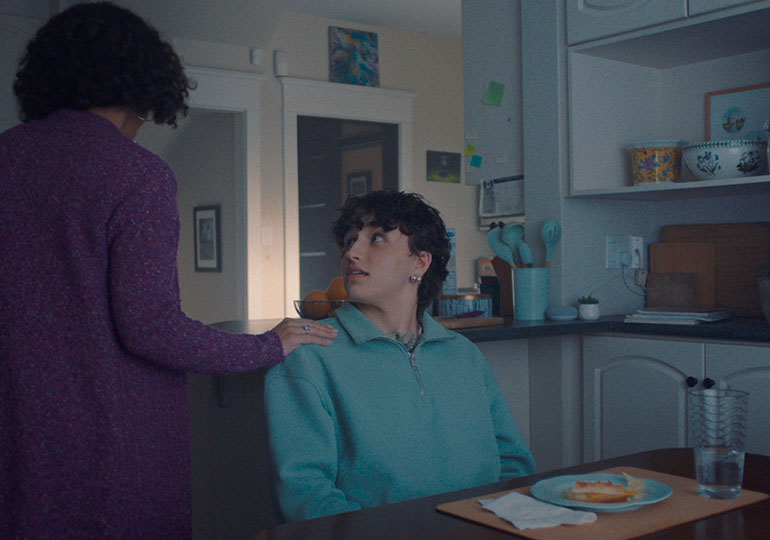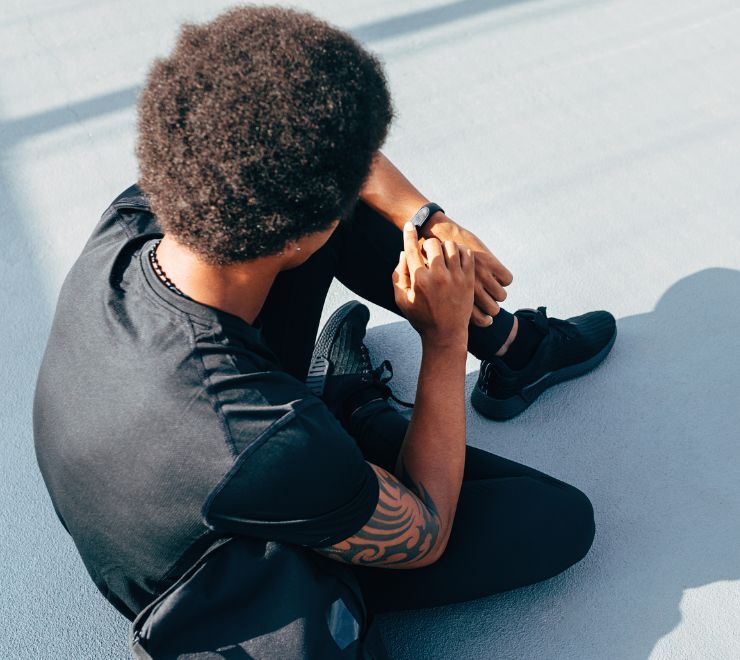Sexual assault is any unwanted sexual act done by one person or a group of people toward another that violates their sexual integrity (personal morals / boundaries / autonomy). Sexual assault is never OK, and if it happens to you, it’s not your fault. Below, Kids Help Phone shares more facts about what sexual assault is, what a person can do to get support if they’ve experienced it and some common myths (and their truths).
A person may be a victim-survivor of sexual assault if they’ve been involved in any type of sexual activity without giving their permission or saying it’s OK (otherwise known as giving consent). This includes any unwanted / forced touching of a sexual nature such as kissing, fondling, oral sex or intercourse.
Sexual assault is an act of sexual violence (info from our friends at Good2Talk) committed by a person or people in order to feel power over another person. It can appear differently depending on the situation. Here are some facts about sexual assault:
- Sexual assault includes sexual touching of your own or another person’s body of any kind that’s unwanted or forced, including kissing or groping.
- If you feel forced to have oral, vaginal and / or anal intercourse or any other type of sexual activity against your will or without your consent, it is sexual assault.
- Someone close to you, such as a classmate, neighbour, friend or even a partner within a dating relationship, can commit sexual assault.
- Multiple people or a group of people can commit sexual assault.
- Other forms of sexual violence include sexual harassment, sexual abuse, sexual exploitation and unwanted sexting.
Sexual assault of any type can be a very traumatic experience, even if you’re able to get away from the Sexual assault of any type can be a traumatic experience, even if you’re able to get away from the attacker / attackers. If you feel that you’ve experienced sexual assault, it can be helpful to remember:
- It’s not your fault. Sexual assault is always the attacker(s)’ fault, not yours. People never “ask for it” because of what they wear or how they act. If sex is forced without someone’s consent, it’s assault. It’s still sexual assault if the people are dating, married or have had sex together before. You never “owe” someone sex.
- Sexual assault isn’t always violent. If you say no or don’t say anything at all, and the person continues, it’s sexual assault because you never gave your permission. This is true even if you don’t resist.
- Sexual assault isn’t always about sex. Sex without consent is an act of violence and aggression. It’s about power and control, and not about things like love, respect, etc. Someone who cares about you will not force you to do anything sexual without your permission.
- You can get help. If you’ve been a victim of sexual assault, you can contact community / emergency services in your area, a sexual violence crisis centre (info from the Canadian Association of Sexual Assault Centres) nearest you or Kids Help Phone for support.
If you think you’ve been sexually assaulted, and if you can, we encourage you to get support immediately.
If you’ve experienced sexual assault, you may have a range of reactions. Sexual assault can lead to:
- anger
- decreased sense of trust and security
- depression
- difficulties with sleep (including bad dreams)
- difficulty maintaining relationships and enjoying sex
- fear and anxiety
- flashbacks
- lowered sense of self-worth
- mood swings
- self-blame
- shame
- shock
- trouble eating
I think I’ve experienced sexual assault — what can I do?
Many communities have sexual assault / crisis lines that may allow you to talk to someone about what you’ve experienced / what you’re feeling, when you feel ready. You can also talk to a family member, close friend, teacher, spiritual leader, counsellor or someone else you trust. If you’re comfortable, you may choose to go to the hospital or to contact community / emergency services in your area.
Getting help, including contacting community / emergency services, is your decision. If you’ve been sexually assaulted and are thinking about reporting it, here are some things to remember:
- It’s often recommended that after a sexual assault has taken place, you don’t bathe or change your clothes until you’ve gone to the hospital for an examination.
- If you go to the hospital after you’ve been sexually assaulted, the staff can provide medical care if you’ve been physically hurt. Hospital staff can talk to you about testing for sexually transmitted infections (STIs) and pregnancy, if needed. They can also look for physical evidence in case you decide to press charges against the attacker / attackers.
- Even if some time has passed since the sexual assault took place, you can still report it.
- If you’d like more information before you make a decision about reporting a sexual assault, you can contact emergency services anonymously (by not providing your name or any identifying details of your experience) to ask questions / learn more about the process.
- You can contact a local sexual assault / crisis line. You can find their contact info online or search Resources Around Me for more information.
Remember: Sexual assault is not your fault and no one has the right to violate you sexually.
If you’re searching for support, you can try connecting with Kids Help Phone’s e-mental health services. Or if you or someone you know is in immediate danger / needs help with a safety plan, you can contact 911, the community / emergency services in your area or mobile crisis support (if it’s available near you) right away.
What are some common myths about sexual assault?
Here are some common myths about sexual assault (and their truths):
Myth: It’s OK to force someone to have sex if they’re drunk, wear provocative clothing or agree to go out on a date with the person.
Truth: It’s never OK to force someone to have sex. No reason justifies sexual assault — you must get consent every time.
Myth: Men always commit sexual assaults.
Truth: People of any gender can commit sexual assault or be a victim-survivor of sexual assault.
Myth: A stranger usually commits sexual assaults.
Truth: You’re more likely to be assaulted by someone you know than by a stranger.
Myth: If my friends are touching someone sexually, it’s OK for me to do it, too.
Truth: Just because your friends are doing it, does not make it OK. Any sexual behaviour without consent is sexual assault, and is not OK.
Myth: If it were really a sexual assault, my body wouldn’t have reacted. If I’m excited, it means I’m enjoying it, so it’s not an assault.
Truth: When touched in a specific way, your body may react (e.g. you may have an erection, experience vaginal lubrication, etc.), but that doesn’t mean that you’re consenting / enjoying what’s happening, or that it’s not an assault.
In addition to experiencing sexual assault, reading, learning and thinking about this topic can bring up all kinds of emotions. Whether you feel you may have experienced sexual assault, you’ve been a bystander or you’re just learning about this topic for the first time, taking a break to take care of yourself can be a helpful next action. Self-care may be different for everyone — if you’re not sure where to start, you can check out Kids Help Phone’s self-care resources or connect with our 24/7 e-mental health services for support.
















